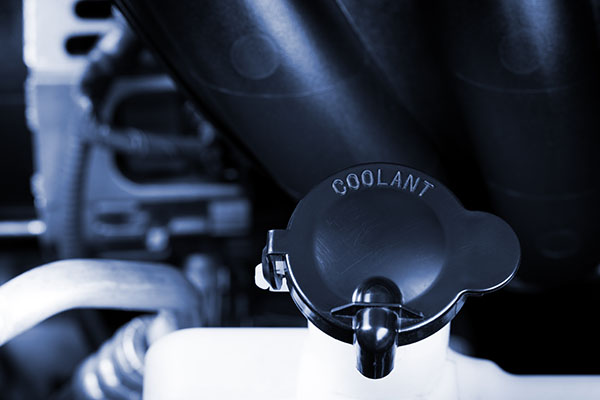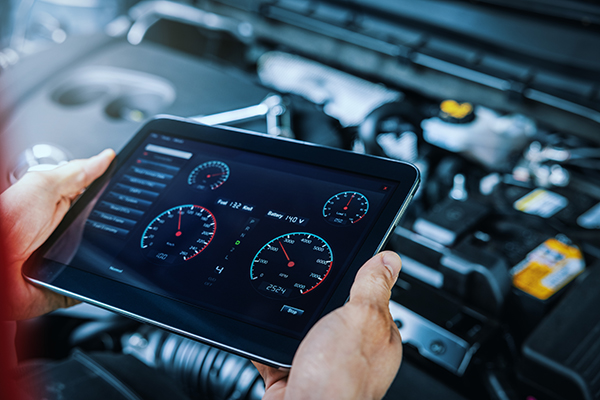Posted on 12/5/2023

The glowing presence of the airbag light on your vehicle's dashboard is more than just a visual cue—it's a crucial signal regarding the health of your safety system. At TC Auto Service, we recognize the importance of unraveling these signals. Understanding the Airbag Light Your vehicle's airbag light serves as a warning, indicating a potential issue within the supplemental restraint system. This system encompasses not only the airbags themselves but also various components like the airbag module, impact sensors, and the intricate network of wiring that connects them. When the airbag light is illuminated, it signals that there might be a malfunction or irregularity that requires investigation. Potential Causes of the Airbag Light Illumination Several factors can trigger the airbag light. A disconnected or fau ... read more
Posted on 11/30/2023

Have you ever found yourself at the auto shop or flipping through an owner's manual, feeling completely bewildered by the variety of car fluids mentioned? You're not alone. Vehicle maintenance can often feel like a complex puzzle, and each fluid is a unique piece that ensures your car runs smoothly and efficiently. Understanding these vital liquids is like knowing the secret language of your vehicle, allowing you to care for it better and potentially save you from costly repairs down the road. Engine Oil Imagine your engine's moving parts grinding against each other without mercy – sounds horrifying, right? Well, that's where engine oil comes to the rescue. It lubricates these components to minimize friction, ensuring they glide together seamlessly rather than screeching in protest. It also helps cool down the engine, keeping those temperatures in check. Remember to change it as recommended because old oil can turn into an engine's wo ... read more
Posted on 10/31/2023

As a car owner, you might have come across varying opinions on how often to change your car's oil. It's worth considering that changing it too often may not necessarily be the best thing for your car. While it's essential to take good care of your vehicle, excessive oil changes can lead to unnecessary costs and environmental harm. Therefore, it's crucial to strike a balance and make informed decisions on when to change your car's oil. Understanding Oil's Role Before diving into the debate, it's crucial to grasp the fundamental role of oil in your car's engine. Engine oil serves as a lubricant, reducing friction between moving parts and preventing excessive wear and tear. It also helps to cool the engine and remove impurities and debris, ensuring a smooth and efficient performance. However, over time, oil degrades, losing its lubricating properties and becoming less effective ... read more
Posted on 9/30/2023

In the modern automotive world, your car's electrical system is as important as the engine. While we often take it for granted, this intricate network of wires and components is vital for a smooth and functional ride. But just like any car part, even the most harmonious auto electrical system can fall out of tune. 1. Dimming Headlights and Interior Lights If you notice your headlights or interior lights flickering or dimming while driving, it could be a sign of electrical issues. This may indicate a faulty alternator, a weakening battery, or poor electrical connections. 2. Slow or Unresponsive Start When your car struggles to start or exhibits a slow crank, it could be due to a failing starter motor, a weak battery, or corroded battery terminals. Ignoring this can lead to a no-start situation. 3. Frequent Blown Fuses If you find yourself replacing fuses more often than usual, it's a clear sign of an electrical problem. Bl ... read more
Posted on 8/31/2023

Revving engines, the smell of gasoline, and the thrill of the open road – there's something undeniably exciting about cars. But behind the wheel, there's a lot more to consider than just the thrill of the ride. Regular tune-ups are the unsung heroes of automotive care, ensuring your vehicle stays in peak condition. What Exactly is a Tune-Up? Imagine your car's engine as the heart of your vehicle. Just like your heart needs check-ups by doctors, so does your engine. A tune-up is essentially a comprehensive check-up for your car. It involves inspecting, adjusting, or replacing various components to ensure your vehicle operates efficiently and safely. Why Tune-Ups MatterImproved Fuel Efficiency: A well-tuned engine runs more efficiently, which means better gas mileage. That's money saved at the pump and a smaller carbon footprint. Extended Lifespan: Regular tune-ups can prolong the life of your ... read more